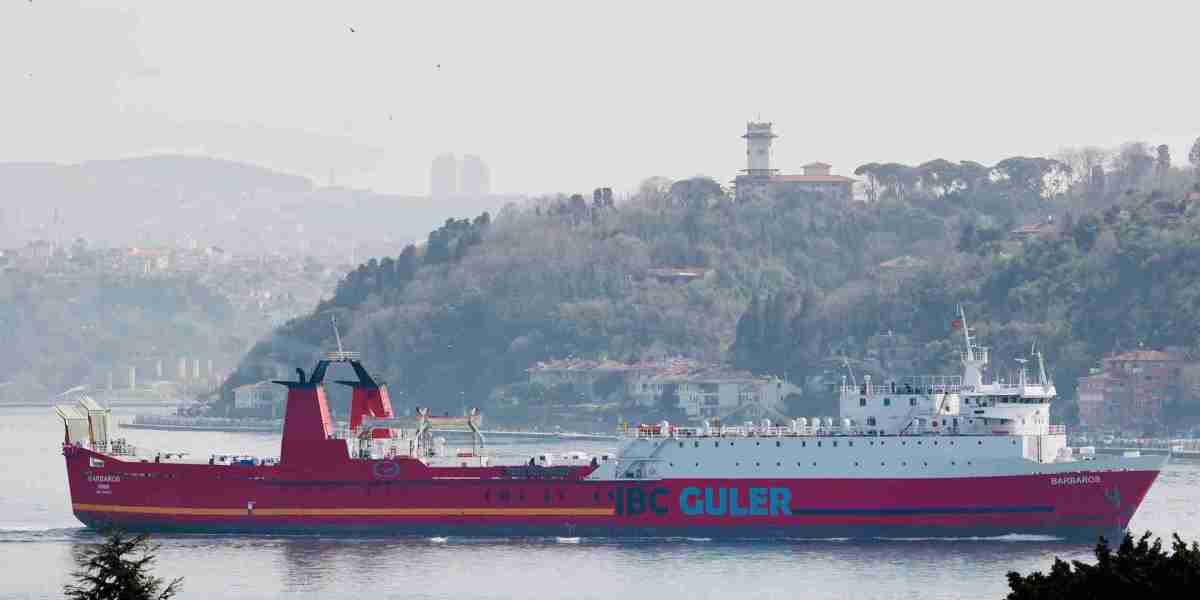DisQurs-Indonesia
By David Kenner
Last spring, a Cameroonian-flagged cargo ship, the Barbaros, steamed through Istanbul’s Bosphorus Strait. The Barbaros had begun its journey in Russia and was en route to a port in eastern Libya controlled by a warlord whose forces have been accused of crimes against humanity by a U.N. fact-finding mission.
As the Barbaros crossed the Bosphorus in April, an eagle-eyed observer — Yörük Işık, who runs a consultancy analyzing maritime activity on the strait — got a view of its cargo. Isik posted photographs of the Barbaros on X, describing it as a “ship of interest” carrying trucks that are often used in military missions and that are manufactured by a sanctioned Russian company.
A flurry of law enforcement activity followed, according to leaked documents from a European Union naval mission called Operation Irini. The mission attempts to track and block weapons shipments to Libya, which are banned under an international arms embargo.
The documents show how commercial vessels — known as a ghost fleet — employed a range of tricks to avoid detection as they shipped Russian equipment to Libya. They also highlight growing European concerns about Russia’s influence in the country, which officials believed was part of a broader strategy by Moscow to project power in the Mediterranean and several African countries.
After Isik posted the photographs, Interpol prepared a report on the Barbaros that found the vessel had manipulated its Automatic Identification System (AIS), the device that transmits information about a ship’s location, in an attempt to conceal its position. The report also found the ship had changed its name three times and had registered itself under the flag of a different country at least 10 times since 2013. The report assessed that the ship “may be carrying firearms destined for Libya” and recommended that authorities closely monitor it.

The Barbaros was bound for the Libyan port of Tobruk, which is ruled by Khalifa Haftar, a military leader who dominates the eastern part of the country.
Russia’s ghost fleet has enriched Moscow by helping it evade Western sanctions on its oil sales, according to the United States and European Union. Whether carrying oil or arms, these vessels often manipulate their AIS to avoid detection. In dozens of reports produced in 2024, European authorities tracked how vessels turned off their AIS when passing near the Syrian port of Tartus, where Russia maintains a naval base. Sometimes, these ships also spoofed their AIS data to appear in a different place than where they actually were. In another case, according to a report included in the leaked documents, a vessel suspected of shipping arms from Syria to Libya manipulated its location to appear offshore the Lebanese capital of Beirut — but mistakenly transmitted its location as on dry land at the airport, rather than the maritime port.
On May 1, 2024, Operation Irini, the European naval mission, boarded the Barbaros and found 115 Russian-made trucks. While the trucks were of a type regularly used by militaries, they had not been specifically modified for military use and thus did not violate the arms embargo, so the ship was allowed to continue its journey to Tobruk. Nevertheless, the EU naval mission wrote in its internal report that the shipment represented “a confirmation of a trend of militarization of the region.”
Officials from Operation Irini did not respond to questions from ICIJ for this story.
For nearly a decade, Moscow has supported Haftar with weapons, money and military personnel, gradually cultivating him as its most important ally in Libya. A U.N.-appointed mission reported in 2023 that forces under Haftar’s control were guilty of “crimes against humanity,” and a report from Amnesty International accused a militia led by his son of engaging in murder, torture and rape.
The elder Haftar, a dual U.S.-Libyan citizen who resided in northern Virginia for two decades, faced multiple civil lawsuits in the United States that accused his forces of killing Libyan civilians. The cases were dismissed last year after a judge ruled that she lacked jurisdiction over the cases. An appeal to that ruling is scheduled to be heard by a U.S. court in May.
Even so, Western officials have not made Haftar an international pariah. In August 2024, three months after the Barbaros arrived in Italy, the commander of U.S. Africa Command and a top U.S. diplomat met with Haftar in Libya.
It’s a testament to Western strategic negligence,
— Anas El Gomati, director of the Sadeq Institute
European officials have also cited Russia’s growing influence in eastern Libya as a reason to increase engagement with institutions under Haftar’s control. “What we don’t do in the East, Russia will do,” said EU Ambassador to Libya Nicola Orlando, according to minutes of an October 2024 meeting at the EU naval mission’s headquarters.
The EU delegation to Libya and spokespeople from the EU’s diplomatic service did not respond to requests for comment from ICIJ.
Anas El Gomati, director of the Tripoli-based Sadeq Institute, said Russia’s presence in Libya gives it control over migrant trafficking routes to Europe and creates a hub for naval operations a few hundred nautical miles from European shores.
“Russia has a partnership with Haftar, but its presence in Libya is much more about the West,” he said. “Ukraine is the eastern flank of NATO, and Libya is the southern flank — it’s Europe’s soft underbelly.”
‘An immediate security issue for Europe’
Russia’s intervention in Libya, partly enabled by the operations of its ghost fleet, has expanded significantly since early 2024, according to European officials.
According to a leaked briefing document, the head of the EU naval mission was advised in June that the number of Russian flights to Libya in the first half of 2024 matched the total for all of 2023, and that the mission had observed “a formalization of the Russian presence” over the past year. The document also described an increase of Russian military shipments to the country. “A Russian naval presence in the Mediterranean is a fact and we see regular navy visits to [Libya],” the briefing document stated.
Mercenaries from the Wagner Group, a Russian private military company that had been operating in Libya since at least 2018, were supplanted in 2024 by the Africa Corps, a unit under the direct control of Russia’s military, the leaked documents reported.






